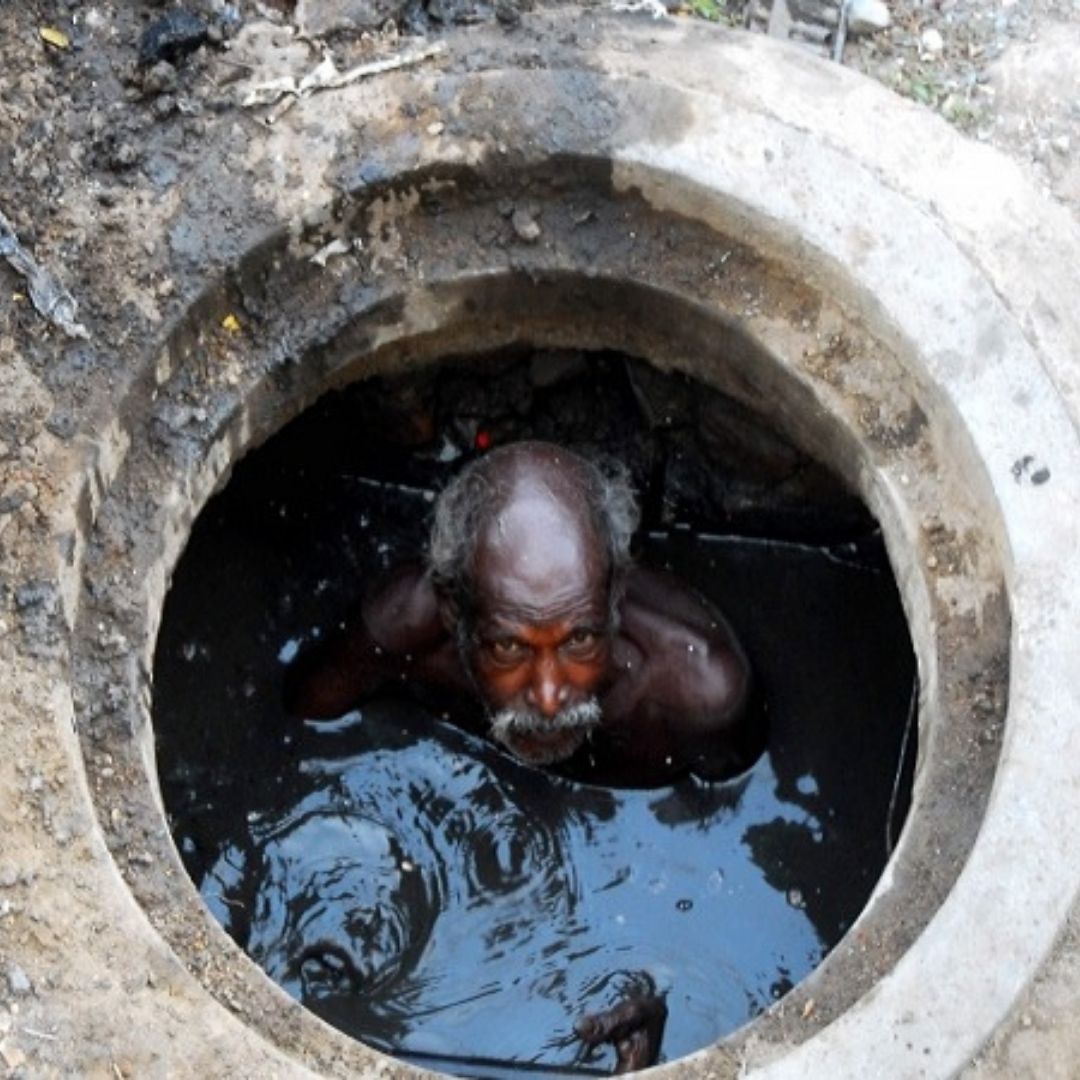
Credits: The New Indian Express
Over 300 People Died In Five Years Cleaning Sewers, Septic Tanks: Govt
Writer: Devyani Madaik
A media enthusiast, Devyani believes in learning on the job and there is nothing off limits when it comes to work. Writing is her passion and she is always ready for a debate as well.
India, 8 Dec 2021 6:00 AM GMT
Editor : Palak Agrawal |
Palak a journalism graduate believes in simplifying the complicated and writing about the extraordinary lives of ordinary people. She calls herself a " hodophile" or in layman words- a person who loves to travel.
Creatives : Devyani Madaik
A media enthusiast, Devyani believes in learning on the job and there is nothing off limits when it comes to work. Writing is her passion and she is always ready for a debate as well.
The government said that the deaths occurred due to accidents while undertaking hazardous cleaning of tanks and sewers and not due to manual scavenging, as the latter meant lifting human excreta from latrines according to Section 2(1)(g) of the Manual Scavenging Act 2013. Several human rights activists have criticised the Act, claiming that it was the primary reason for underreporting such incidents.
Nearly 321 people have died in the last five years while cleaning sewers and septic tanks.
Minister of State for Social Justice and Empowerment Ramdas Athawale provided the data in response to a query raised by Bahujan Samaj Party member Girish Chandra in the Lok Sabha on the status of manual scavenging in India.
The BSP member also sought the number of people involved in cleaning and the Centre's efforts to reinstate these people. Athawale said there are about 58,098 manual scavengers at present. Uttar Pradesh had a maximum number of people (32,473), and Chattisgarh with the lowest (3), Scroll.in reported.
The number is problematic, given that the practice is banned in the country. In 1993, the Employment of Manual Scavengers and Construction of Dry Latrines (Prohibition) Act was implemented to prevent the employment of people for the cleaning, opening pits, drains, etc., and punish the employer with imprisonment for up to one year and a fine.
Distinguishing Between Manual Scavenging & Cleaning
However, Athwale said that the deaths occurred due to accidents while undertaking hazardous cleaning of tanks and sewers and not due to Manual Scavenging, as the latter meant lifting human excreta from latrines according to Section 2(1)(g) of the Prohibition of Employment as Manual Scavengers and their Rehabilitation Act, 2013.
The 2013 act distinguishes between people involved in cleaning faeces and the practice of cleaning sewers and septic tanks. But it defines hazardous as manual cleaning without any proper gear and other cleaning devices for safety.
Several human rights activists have criticised the Act, claiming that it was the primary reason for underreporting such incidents.
Also Read: Bihar Police Rescues 11 Minors Trafficked From Bengal, Forcibly Employed In Dance Troupe
 All section
All section














